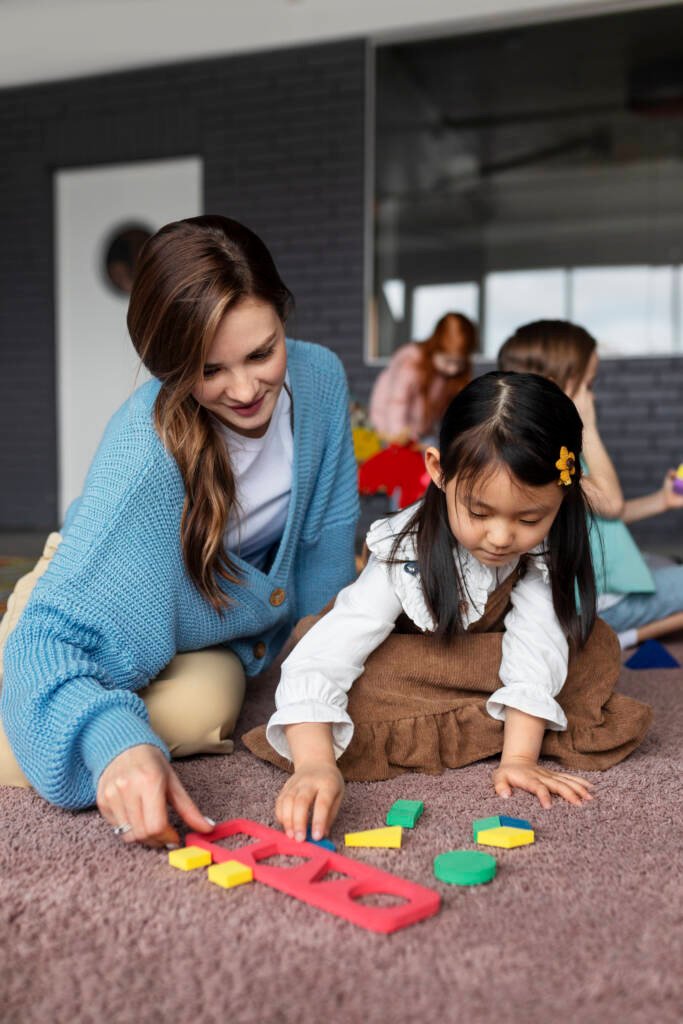How Competency-Based Learning Transforms Classrooms
In an era where education must evolve beyond rote memorization and standardized assessments, Competency-Based Learning (CBL) emerges as a transformative paradigm—one that prioritizes understanding over completion, mastery over mere progression, and depth over breadth. Rooted in the vision of the National Education Policy 2020 (NEP 2020), this shift is not just a pedagogical adjustment—it is a philosophical reimagination of how we teach, learn, and grow.
From Time-Bound Learning to Learning Without Bounds
Traditional education systems have long operated on a time-based model: fixed schedules, uniform curricula, and predetermined assessments that often push learners through a conveyor belt of content. In this system, time is constant, and mastery is variable. Competency-Based Learning turns this equation on its head—here, mastery is constant, and time becomes the variable. Learners are not moved ahead until they demonstrate a deep, conceptual understanding of a subject or skill.
This model acknowledges the simple yet profound truth that learning is personal, and that each learner brings their own pace, strengths, challenges, and contexts into the classroom. Competency-Based Learning accommodates this diversity rather than flattening it.


The NEP 2020 Mandate: A Call for Deeper Learning
NEP 2020 unequivocally calls for a shift toward holistic, learner-centered education—stressing the importance of critical thinking, conceptual clarity, inquiry-based learning, and experiential approaches. One of its key directives is to move away from high-stakes exams and rote content memorization toward formative assessments and mastery of core competencies. The policy envisions a future where learners are equipped with skills for life, not just for exams—a vision deeply aligned with the principles of Competency-Based Learning.
CBL supports this by defining clear learning outcomes and allowing students to demonstrate their competencies through multiple pathways—projects, performances, reflections, and portfolios—rather than a one-size-fits-all test. It empowers learners to take ownership of their learning journeys, cultivating autonomy, confidence, and a lifelong love for learning.
Competency ≠ Content
In a Competency-Based classroom, the focus is not merely on what students learn, but how well they apply what they learn. Competencies go beyond subject knowledge; they include skills, dispositions, and values—such as collaboration, ethical reasoning, creativity, communication, and problem-solving. This shift is particularly powerful in the Indian context, where education must serve not only economic needs but also social, emotional, and cultural ones.
It also resonates with the wisdom of Indian Knowledge Systems (IKS), which have historically emphasized anubhav (experience) and bodh (realization) over passive reception of information. CBL echoes this ancient approach by anchoring knowledge in real-life application and experiential understanding.
What Changes in the Classroom?
-
Clear Learning Goals: Students know exactly what is expected and what success looks like. Competencies are articulated transparently and in student-friendly language.
-
Personalised Pathways: Learners progress upon demonstrating mastery, not when the calendar says it’s time. Teachers serve as facilitators, coaches, and co-learners in the process.
-
Formative Assessment Practices: Assessment becomes continuous, diagnostic, and growth-oriented. Mistakes are treated as opportunities to learn, not failings to be punished.
-
Learning Beyond the Textbook: Projects, peer learning, reflections, real-world tasks, and interdisciplinary connections take center stage. Students see the relevance of their learning to their lives and communities.
-
Empowered Educators: Teachers are not just content deliverers, but learning designers and competency developers. Their role becomes richer, more dynamic, and deeply impactful.
The Indian Classroom at a Crossroads
India stands at a defining moment. With one of the world’s youngest populations, our classrooms are the crucibles of our collective future. Competency-Based Learning is not merely an educational strategy—it is a national imperative. It promises to unlock each learner’s potential by focusing on what truly matters: understanding, application, and growth.
This approach aligns with the ancient Indian ideal of vidya—not as the accumulation of facts, but as a transformative force that molds character, fosters self-knowledge, and nurtures responsible citizenship. Competency-Based Learning is, in many ways, a return to this timeless vision—modern in execution, but deeply rooted in wisdom.
A New Horizon for Learners and Educators
In embracing Competency-Based Learning, we are not just changing how we teach—we are changing why we teach. We are shifting from producing exam-takers to nurturing thinkers, creators, and changemakers. From a system of comparison to a culture of mastery. From fear of failure to the joy of learning.
The classroom of tomorrow is one where every learner is seen, heard, and empowered to master their own path. Competency-Based Learning lights the way forward.
The question before us is not whether we can afford to transform our classrooms—but whether we can afford not to.



